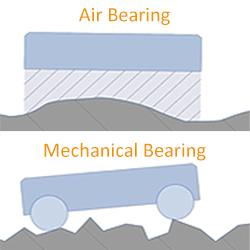Lithium Power Adds More Battery Management System Design Teams to Support Robot Manufacturers
Robot designers are shifting from hiring in-house battery engineers to contracting with battery design firms. This move is cutting the time-to-market because the power solution gets integrated better, and faster. No more ad hoc, last-minute, schedule-killing battery integration issues, according to one industry pro.
San Jose, CA July 11, 2015
In 2015, Robotics Designers are Hiring Expertise, Not Employees
Lithium Power is doubling its commitment to support the designers of robots and other mobile mechanical devices. Dedicated design teams have been placed in their design center to foster interactive innovation and cross-functional creativity.
"Smart robot designers have discovered that it is more efficient to hire battery design expertise than it is to try to add that expertise to their engineering staffs," says Wilson Chan, CEO of Lithium Power. "We needed to respond to this increased demand by beefing up our resources and continuing the process improvements that allow us to help our clients get through the design and testing phases faster and ‘go-to-market more quickly."
Chan thinks this switch to hiring out battery design is driven in part by its unique engineering challenge. "Battery design combines electrical engineering with chemical engineering," Chan notes. "This combination is not found on the engineering staffs of many robot design teams. Larger companies can keep a battery engineer fully employed with multiple projects. Smaller engineering firms cannot, and have found that hiring the expertise project-by-project works better."
Larger companies can also tap into resources like Texas Instruments open source lithium battery designs, but smaller firms are not TIs target market. Such firms need a partner that is used to working with smaller firms with fewer resources, and can add value quickly with turnkey solutions.
"That is the market trend we are responding to," notes Chan. "So far, the reviews are positive, and we will keep honing the model with our clients, keeping their engineers focused on the mechanical and electrical aspects of the project. Our mission remains the same: Help smaller robotics firms incorporate the right power source that will allow the robot to deliver on its consumer promise, and do our part quickly to keep their projects moving forward on schedule."
The best reason for hiring a battery management system design team up front is not hard to figure out, either, says Chan.
"If the power solution, and the battery management system that runs it, is not thought out in parallel with the development of the robot, design conflicts will arise later that cause delays and unnecessary design overhauls. In all the work we have done designing batteries for robots, we see this happen too often, even with engineers that know better. They get caught up in solving the mechanical and electrical challenges, mentally saying ‘well plug a better battery solution in once we get the basic design done. With a battery specialist working with the team from the start, conflicts between robot design and power requirements are spotted and dealt with early. This keep battery issues from becoming showstoppers, and speeds the move from design to production."
About Wilson Chan
Wilson Chan is the CEO and founder of Lithium Power, Inc. A veteran of device design and manufacturing for three decades, he has worked on management and technology solutions for firms in the Venture Capital, Electronic Display, Industrial Computer, Server-client Embedded Device, Medical Equipment and Electronic Payment industries. His breadth of experience with engineering challenges led him to found Lithium Power to address a big gap in robotic design: Find a better path to fully integrate the best possible power source into the machine to maximize its performance in the marketplace.
About Lithium Power, Inc.
Lithium Power, Inc. specializes in lithium technology and offers custom-made battery packs as turnkey solutions for OEM/ODM customers for medical, UAV, energy storage and industrial applications. The company also provides off-shelf lithium replacement batteries for the iRobot Roomba, Scooba 300/450 series, Neato XV series, as well as scalable lithium battery modules for solar-powered products and medical-grade, long-lasting lithium battery packs for nursing-cart applications. Lithium Power, Inc. offers innovative breakthrough technology and ideas tailored to each of its specific application markets. For more information, call (408) 837-0206 or visit us at http://www.LithiumPowerInc.com/
Featured Product

PI USA - High Precision R-Theta Stages for Semicon, Laser Processing Apps
2-axis R-Theta motion systems are better suited to spiral motion than Cartesian XY stages. R-Theta systems often find applications in precision laser / semiconductor applications due to higher throughput, precision, and smaller size. See examples and options.
